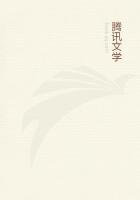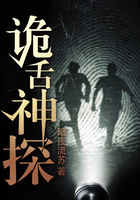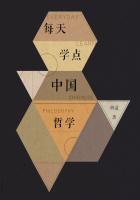2) The principle of specific energy is contradictory to the fact that in many senses the number of different sensory elements does not correspond at all to that of different sensational qualities. Thus, from a single point in the retina we can receive all possible sensations of brightness and color; in the organs of smell and taste we find no clearly distinguishable forms of the sensory elements, while even a limited area of their sensory surfaces can receive a variety of sensations, which, especially in the case of the olfactory organ, is very large. Where we have every reason to assume that qualitatively different sensations actually do arise in different sensory elements, as in the case of the auditory organ, the structure of the organ goes to show that this difference is not due to any attribute of the nerve-fibres or of other sensory elements, but that it comes originally from the way in which they are arranged. Different fibres of the auditory nerve will, of course, be stimulated by different tone-vibrations, because the different parts of the basilar membrane are tuned to different tones; but this is not due to some original and inexplicable attribute of the single auditory nerve-fibres, but to the way in which they are connected with the end-organ.
3) Finally, the sensory nerves and central elements can have no original specific energy, because the peripheral sense-organ must be exposed to the adequate stimuli for a sufficient interval, or must at least have been so exposed at some previous period, before the corresponding sensations can arise through their stimulation. Persons congenitally blind and deaf do not have any sensations of light or tone whatever, so far as we know, even when the sensory nerves and centres were originally present.
Everything goes to show that the differences in the qualities of sensations are conditioned by the differences in the processes of stimulation that arise in the sense-organs. These processes are dependent, primarily on the character of the physical stimuli, and only secondarily on the peculiarities of the receiving organ, which are due to its adaptation to these stimuli. As a result of this adaptation, however, it may happen that even when some stimulus other than that which has effected the original adaptation of the sensory elements, that is, when an inadequate stimulus acts, the sensation corresponding to the adequate stimulus may arise. Still, this does not hold for all stimuli or for all sensory elements. Thus, hot and cold stimulations can not cause cutaneous sensations of pressure or sensations in the special sense-organs; chemical and electrical stimuli produce sensations of light only when they act upon the retina, not when they act on the optic nerve; and, finally, these general stimuli can not arouse sensations of smell or taste. When an electric current causes chemical disintegration, it may, indeed, arouse such sensations, but it is through the adequate chemical stimuli produced.
5. From the very nature of the case, it is impossible to explain the character of sensations from the character of physical and physiological stimuli. Stimuli and sensations can not be compared with one another at all; the first belong to the mediate experience of the natural sciences, the second to the immediate experience of psychology. An interrelation between sensations and physiological stimuli must necessarily exist, however, in the sense that different kinds of stimulation always correspond to different sensations. This principle of the parallelism of changes in sensation and in physiological stimulation is an important supplementary principle in both the psychological and physiological doctrines of sensation. In the first case it is used in producing definite changes in the sensation by means of intentional variation of the stimulus; in the second it is used in inferring the identity or non-identity of physiological stimulations from the identity or non-identity of the sensations. Furthermore, the same principle is the basis of our practical life and of our theoretical knowledge of the external world. A. SENSATIONS OF THE GENERAL SENSE.
6. The definition of the "general sense" includes two factors.
In point of time, the general sense is that which precedes all others and therefore belongs to all beings, endowed with mind. In its spacial attributes, the general sense is distinguished from the particular senses in having the most extensive sensory surface exposed to stimuli. It includes not only the whole external skin and the adjoining areas of the mucous membrane, but a large number of internal organs supplied with sensory nerves, such as joints, muscles, tendons, and bones, which are accessible to stimuli either always, or at certain times, under special conditions, as is the case with bones. The general sense includes four specific, distinct sensational systems: sensations of pressure, hot, cold, and pain. Not infrequently a single stimulus arouses more than one, of these sensations. The sensation is then immediately recognized as made up of a mixture of components from the different systems; for example, from sensations of pressure and pain, or from sensations of hot and pain. In a similar manner as a result of the extension of the sense-organ, we may often have mixtures of the various qualities of one and the same system, for example, qualitatively different sensations of pressure, when an extended region of the skin is touched.

